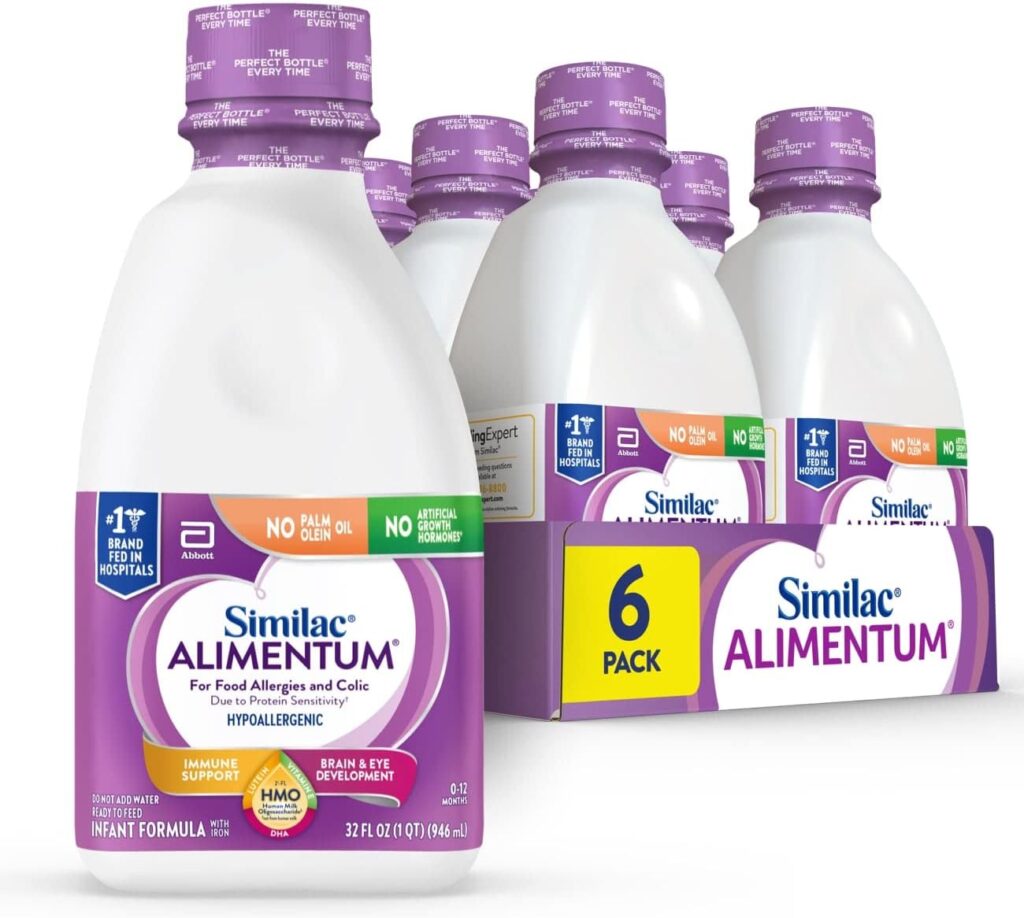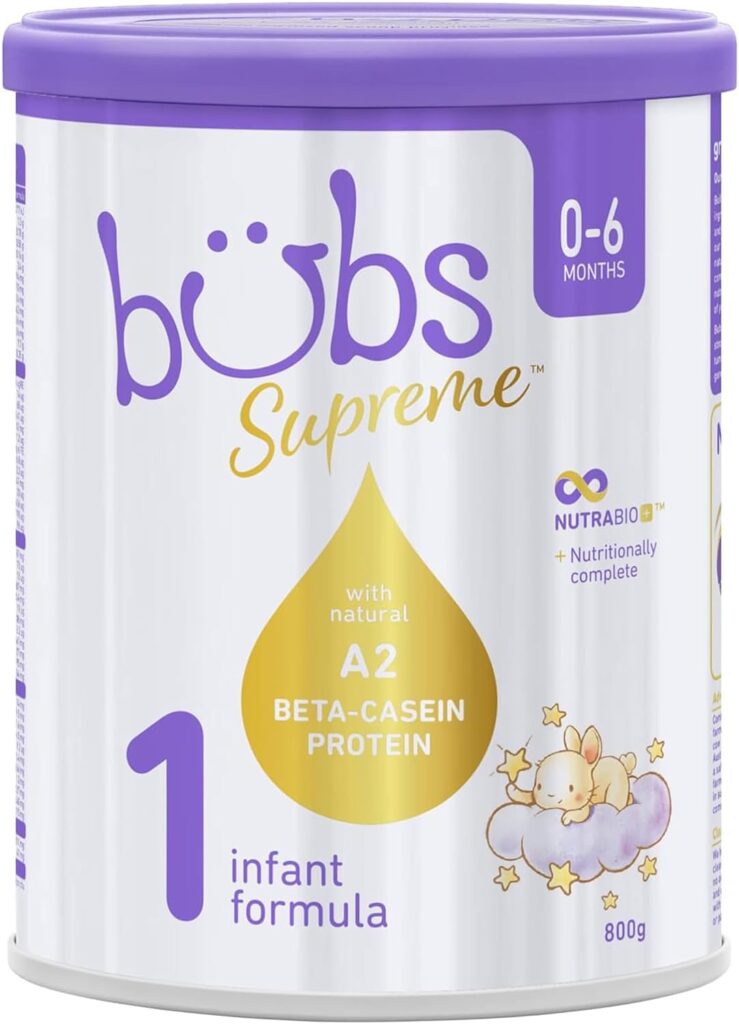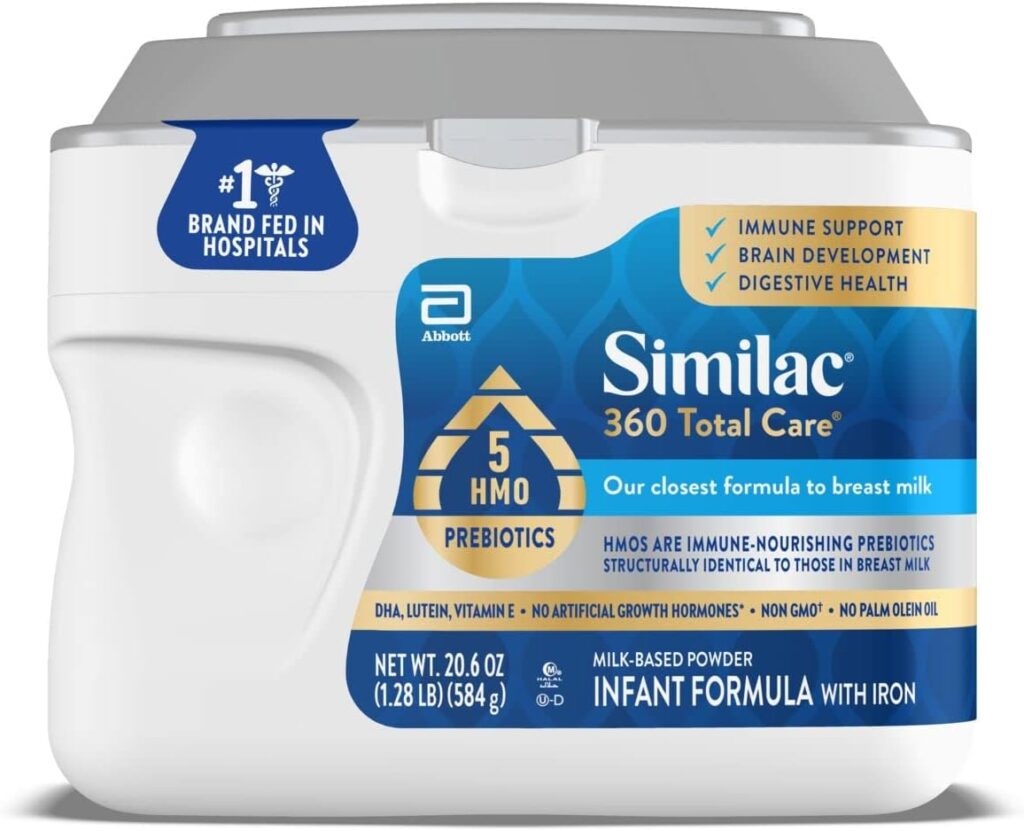How Much Formula for Newborn typically need 1.5 to 3 ounces of formula every 2 to 3 hours. Adjust the amount based on the baby’s hunger cues.
Newborns rely heavily on formula during their first months of life. Understanding the right amount to feed them is crucial for their growth and development. On average, newborns consume about 1. 5 to 3 ounces of formula every 2 to 3 hours.
This frequency ensures they receive adequate nutrition throughout the day. Parents should look for hunger cues to determine if their baby needs more or less formula. Signs like sucking on fists or increased alertness can indicate hunger. Always consult with a pediatrician to tailor the feeding schedule to your baby’s specific needs. Proper feeding habits set the foundation for a healthy start in life.
Importance Of Proper Feeding
Feeding your newborn the right amount of formula is crucial. The importance of proper feeding cannot be overstated. It ensures your baby receives the nutrients they need for growth and development. Understanding how much formula your newborn needs can be challenging but is vital for their health and well-being.
Establishing A Feeding Schedule
Setting a regular feeding schedule helps both you and your baby. Newborns typically feed every 2-3 hours. This means about 8-12 feedings in a 24-hour period. Keeping track of these feedings is essential. A simple table can help:
| Time | Amount of Formula | Notes |
|---|---|---|
| 6:00 AM | 2 ounces | First feeding of the day |
| 9:00 AM | 2 ounces | Baby was very hungry |
| 12:00 PM | 2 ounces | Normal feeding |

Consistency is key in establishing a feeding schedule. Babies thrive on routine. It helps them understand what to expect and provides comfort. Signs of hunger include crying, lip-smacking, and sucking on hands. Be attentive to these signals. Over time, you will notice your baby’s unique hunger cues. Avoid overfeeding by watching for signs of fullness. These include turning away from the bottle and falling asleep during feeding.
Benefits Of Proper Nutrition
Proper nutrition has many benefits for your newborn. It supports their rapid growth and development. Newborns grow quickly, and proper nutrition ensures they gain weight at a healthy rate. Strong immune system development is another benefit. A well-fed baby is better equipped to fight off infections and illnesses. Cognitive development is also supported by proper nutrition. Essential nutrients contribute to brain growth and function.
- Healthy weight gain: Ensures appropriate growth patterns.
- Strong immune system: Reduces the risk of infections.
- Optimal brain development: Supports cognitive and motor skills.
Hydration is another crucial aspect. Babies need adequate fluids for proper bodily functions. Formula feeding ensures they stay hydrated. Emotional bonding happens during feeding times. Holding your baby close and maintaining eye contact fosters a strong parent-child bond. Feeding milestones are easier to track with proper nutrition. You’ll notice your baby reaching milestones like rolling over and sitting up on schedule.
Understanding Newborn Feeding Needs
New parents often wonder, “How much formula should a newborn have?” Understanding newborn feeding needs can ease concerns and help you ensure your baby gets the right nutrition. Knowing the nutritional requirements and feeding frequency is crucial for your baby’s healthy growth.
Nutritional Requirements
Newborns have specific nutritional needs that formula must meet. Breast milk is the gold standard, but infant formula is designed to closely mimic its nutritional profile. Here are some key nutrients that are essential for your newborn:
- Proteins: Crucial for growth and development.
- Fats: Provide energy and support brain development.
- Carbohydrates: The main source of energy.
- Vitamins and Minerals: Support overall health, including immune function and bone growth.
Infant formula is regulated to ensure it contains the necessary nutrients. Check the label to make sure it meets the following standards:
| Nutrient | Daily Requirement |
|---|---|
| Proteins | 1.52 grams per kilogram of body weight |
| Fats | 31 grams per day |
| Carbohydrates | 60 grams per day |
| Iron | 0.27 mg per day |
Always consult your pediatrician before choosing a formula. They can recommend the best option based on your baby’s needs.
Feeding Frequency
Newborns have small stomachs, so they need to be fed frequently. Typically, newborns eat every 2 to 3 hours. This means you may need to feed your baby 8 to 12 times a day. Here’s a simple guide to follow:
- Days 1-3: Feed 1 to 2 ounces of formula per feeding.
- Days 4-7: Increase to 2 to 3 ounces per feeding.
- Weeks 2-4: Offer 3 to 4 ounces per feeding.
- By one month: Your baby may take about 4 ounces per feeding.
Watch for hunger cues to know when your baby is ready to eat. These include:
- Rooting reflex: Turning head and opening mouth.
- Sucking on hands or fingers.
- Fussing or crying.
Feeding on demand ensures your baby gets enough formula. Keep track of feedings to monitor your baby’s intake. This helps you adjust the amount as they grow.
Understanding your newborn’s feeding needs is essential for their health. By knowing the nutritional requirements and feeding frequency, you can ensure your baby gets the right start in life.

Introduction To Formula Feeding
Feeding your newborn is a crucial part of parenting. Understanding how much formula to give your baby can be challenging. This guide will help you navigate through the world of formula feeding. We will explore different types of formula and how to choose the right one for your newborn.
Types Of Formula
There are various types of formula available for newborns. Each type serves a different purpose and has unique ingredients. Here are the main types:
- Milk-Based Formula: This is the most common type. It contains cow’s milk that has been altered to resemble breast milk. Suitable for most babies.
- Soy-Based Formula: Made from soy protein. Ideal for babies with lactose intolerance or milk allergies.
- Hydrolyzed Formula: Proteins are broken down into smaller pieces. Recommended for babies with protein allergies.
- Specialized Formula: Designed for specific medical conditions. Includes formulas for premature babies or those with metabolic disorders.
Here’s a quick comparison table:
| Type | Best For | Key Ingredients |
|---|---|---|
| Milk-Based | Most Babies | Cow’s Milk, Lactose |
| Soy-Based | Lactose Intolerance | Soy Protein, Corn Syrup |
| Hydrolyzed | Protein Allergies | Hydrolyzed Proteins |
| Specialized | Medical Conditions | Varies by Condition |
Choosing The Right Formula
Choosing the right formula for your newborn is essential. Here are some tips to help you make the best choice:
- Consult Your Pediatrician: Always talk to your baby’s doctor before choosing a formula. They can recommend the best type based on your baby’s needs.
- Consider Allergies: If there’s a family history of allergies, opt for a hypoallergenic or hydrolyzed formula.
- Read Labels: Check the ingredients list for any potential allergens. Avoid formulas with added sugars or unnecessary additives.
- Observe Baby’s Reaction: Monitor how your baby reacts to the formula. Signs of intolerance include fussiness, gas, or diarrhea.
Here’s a step-by-step guide:
- Identify Your Baby’s Needs: Determine if your baby has any specific dietary requirements.
- Research Formula Options: Look into different types of formula that suit your baby’s needs.
- Consult with a Pediatrician: Get professional advice to narrow down your options.
- Test the Formula: Introduce the formula gradually and observe any changes in behavior or digestion.
Preparing Formula For Feeding
Newborns have delicate tummies and need proper nutrition to grow healthy and strong. Knowing how much formula to give your newborn is crucial, but equally important is preparing the formula correctly. Proper preparation ensures your baby gets all the nutrients needed and prevents any health issues. Below, we’ll guide you through preparing formula for feeding, focusing on proper mixing techniques and safe storage and handling.
Proper Mixing Techniques
Mixing formula correctly ensures your baby receives the right balance of nutrients. Follow these steps to mix formula properly:
- Wash your hands thoroughly before handling any feeding equipment.
- Use sterilized bottles and nipples to prevent contamination.
- Boil water and let it cool to a safe temperature (around 70°C or 158°F).
- Measure the water accurately using a clean cup or the bottle itself.
- Add the correct amount of formula powder as per the instructions on the package.
- Secure the bottle cap and shake well until the powder is fully dissolved.
Accurate measurement is crucial. Too much water can dilute the formula, while too little can make it too concentrated. Always follow the manufacturer’s instructions.
Here’s a simple table to help you with measurements:
| Age | Formula Amount (per feeding) | Number of Feedings (per day) |
|---|---|---|
| 0-2 weeks | 2-3 ounces | 8-12 |
| 2 weeks-2 months | 3-4 ounces | 6-8 |
Safe Storage And Handling
Storing and handling formula properly is vital to keep your baby safe. Follow these guidelines:
- Prepare formula just before feeding to ensure freshness.
- If you need to prepare in advance, refrigerate the bottle immediately.
- Use refrigerated formula within 24 hours to prevent bacteria growth.
- Do not leave prepared formula at room temperature for more than 1 hour.
- If the baby doesn’t finish the bottle, discard any leftover formula.
- Clean and sterilize all feeding equipment after each use.
Here’s a quick reference table for storage times:
| Storage Method | Maximum Storage Time |
|---|---|
| Room Temperature | 1 hour |
| Refrigerated | 24 hours |
| Freezer | Not recommended |

Following these steps will help keep your baby healthy and happy. Proper mixing and storage of formula are essential for your baby’s nutrition and safety.
Feeding Guidelines
Feeding a newborn can be challenging, especially for new parents. Understanding how much formula your baby needs is crucial for their growth and well-being. These feeding guidelines will help ensure your baby gets the right amount of nutrition.
Determining The Right Amount
Knowing the right amount of formula to feed your newborn is essential. Babies’ nutritional needs vary based on age, weight, and appetite. Here are some general guidelines:
- In the first few days, a newborn may only need 1 to 2 ounces of formula per feeding.
- By the end of the first week, this usually increases to 2 to 3 ounces per feeding.
- From one month onwards, most babies will consume around 4 ounces per feeding.
Here’s a simple table to summarize:
| Age | Formula Amount per Feeding |
|---|---|
| 0-1 week | 1-2 ounces |
| 1-4 weeks | 2-3 ounces |
| 1 month+ | 4 ounces |
Always follow your baby’s cues and consult with your pediatrician for personalized advice. Each baby is unique, and these amounts are guidelines, not strict rules. If your baby finishes a bottle and still seems hungry, they might need a bit more.
Recognizing Hunger And Fullness Cues
Understanding your baby’s hunger and fullness cues will help you feed them the right amount. Babies use various signals to communicate their needs. Here are some common hunger cues:
- Rooting reflex: Turning their head towards anything that strokes their cheek.
- Hand sucking: Bringing hands to their mouth.
- Fussiness: Becoming more alert and active.
Recognizing fullness cues is equally important. Signs that your baby is full include:
- Turning away from the bottle: Refusing to latch onto the nipple.
- Slowing down: Sucking less vigorously.
- Falling asleep: Becoming drowsy during feeding.
Paying attention to these cues helps prevent overfeeding and ensures your baby is comfortable. Always remember, every baby is different. Trust your instincts and observe your baby’s behavior closely.
Common Challenges
Feeding a newborn can be challenging for many parents. Knowing how much formula to give your baby is crucial. In this section, we will discuss some common challenges parents face while feeding their newborns.
Overfeeding And Underfeeding Risks
New parents often worry about overfeeding or underfeeding their newborn. Both can lead to health issues. Recognizing the signs can help maintain a healthy feeding routine.
Overfeeding a baby can cause discomfort and other problems such as:
- Excessive weight gain
- Digestive issues
- Increased spit-up
Signs of overfeeding include:
- Frequent spitting up
- Fussiness after feeding
- Loose stools
Underfeeding can also be a concern. It can lead to poor weight gain and developmental delays. Signs of underfeeding include:
- Infrequent wet diapers
- Fussiness and crying
- Poor weight gain
It’s important to follow a feeding schedule and monitor your baby’s growth. Consulting with a pediatrician can help establish a proper feeding plan.
Dealing With Spit-up And Reflux
Spit-up and reflux are common issues for newborns. Spit-up is usually harmless and often occurs after feeding. Reflux, however, can cause discomfort and needs attention.
To manage spit-up, consider these tips:
- Feed smaller amounts more frequently
- Burp your baby during and after feeding
- Keep your baby upright for 20-30 minutes after feeding
Reflux can be more severe and may require medical advice. Symptoms of reflux include:
- Frequent vomiting
- Poor weight gain
- Fussiness during or after feeding
To reduce reflux, try these methods:
- Elevate the head of your baby’s crib
- Avoid tight diapers and clothing around the stomach
- Feed in an upright position
If symptoms persist, consult your pediatrician. They may recommend special formula or medication.
Special Considerations
Feeding a newborn can be a joyful yet challenging experience. While many parents often wonder about the right amount of formula for their newborns, special considerations must be taken into account for certain circumstances. Each infant’s needs vary, and understanding these nuances ensures your baby’s health and happiness.
Feeding Premature Infants
Feeding premature infants requires special attention. Premature babies, born before 37 weeks, often have underdeveloped digestive systems. Here are some key points to consider:
- Smaller, more frequent feedings are essential as premature infants have smaller stomachs.
- Specialized preemie formulas provide higher calories and nutrients necessary for growth.
- Consult your pediatrician to determine the best feeding schedule and formula type.
A typical feeding schedule might look like this:
| Age (Weeks) | Feedings per Day | Ounces per Feeding |
|---|---|---|
| 1-2 | 8-12 | 1-2 |
| 3-4 | 7-10 | 2-3 |
Monitor weight gain and overall health closely. Premature infants often need more calories. Your healthcare provider can guide you on the exact amount.
Allergy And Sensitivity Issues
Newborns can develop allergies or sensitivities to certain formulas. Identifying these issues early ensures your baby’s comfort and health. Here are some signs to watch for:
- Excessive gas or fussiness after feeding.
- Rashes or eczema on the skin.
- Frequent diarrhea or vomiting.
If you notice any of these symptoms, consider these steps:
- Consult your pediatrician immediately.
- Switch to a hypoallergenic formula if recommended.
- Document symptoms to help identify triggers.
Several types of hypoallergenic formulas are available:
| Type of Formula | Features |
|---|---|
| Hydrolyzed | Proteins are broken down, easier to digest. |
| Amino Acid-Based | Free of allergens, used for severe cases. |
Choosing the right formula can make a big difference. Keep track of your baby’s reactions to ensure they are comfortable and thriving.
Monitoring Growth And Development
Ensuring your newborn is getting the right amount of formula is crucial. Monitoring growth and development helps you understand if your baby is thriving. Keeping an eye on weight gain and hitting developmental milestones are key indicators of your baby’s health.
Weight Gain Expectations
Newborns grow rapidly. Knowing how much weight your baby should gain helps you determine if they are getting enough formula. In the first few days, newborns may lose about 7-10% of their birth weight. But they should regain it by the end of the first two weeks.
After the initial period, expect your baby to gain:
- 1-2 ounces per day in the first month
- 5-7 ounces per week from 1-3 months
- 1-2 pounds per month from 3-6 months
Regularly weigh your baby using a baby scale. Consult your pediatrician if your baby isn’t gaining weight within these ranges.
| Age | Expected Weight Gain |
|---|---|
| 0-1 month | 1-2 ounces/day |
| 1-3 months | 5-7 ounces/week |
| 3-6 months | 1-2 pounds/month |
Watch for signs of adequate feeding: contentment after feeding, regular wet diapers, and consistent weight gain.
Developmental Milestones
Monitoring developmental milestones is another way to check your baby’s growth. Each baby develops at their own pace, but there are common milestones to watch for.
By the end of the first month, your baby should be able to:
- Focus on faces
- Respond to sounds
- Move arms and legs smoothly
By three months, look for:
- Smiling at people
- Coos and babbles
- Holds head steady
Here’s a quick overview of milestones:
| Age | Milestones |
|---|---|
| 1 month | Focus on faces, respond to sounds |
| 3 months | Smile, coo, hold head steady |
If you notice delays in these milestones, discuss them with your pediatrician. Early intervention can help address any concerns.
Frequently Asked Questions
How Many Ounces Should A Newborn Drink Chart?
Newborns typically drink 1. 5 to 3 ounces of milk every 2-3 hours. This amount increases as they grow. Consult your pediatrician for personalized advice.
How Much Formula Do I Give My Newborn?
Feed your newborn about 2-3 ounces of formula every 3-4 hours. Watch for hunger cues and adjust as needed. Consult your pediatrician for personalized advice.
How Much Formula To Give Baby Calculator?
Use a formula calculator to determine the amount. Enter baby’s age, weight, and feeding frequency to get accurate results.
How Much Formula And Breastmilk Should I Feed My Baby?
Feed newborns 1-3 ounces of formula every 3-4 hours. Breastfed babies eat 8-12 times daily. Adjust as they grow. Always consult your pediatrician.
How Much Formula For Newborn Per Feeding?
Newborns typically need 2-3 ounces of formula every 3-4 hours during the first weeks of life.
Conclusion
Understanding your newborn’s formula needs is crucial for their health. Monitor their hunger cues and growth. Consult your pediatrician for personalized advice. Remember, every baby is unique, and their needs may vary. By staying informed, you ensure your baby gets the right nutrition for optimal development.







